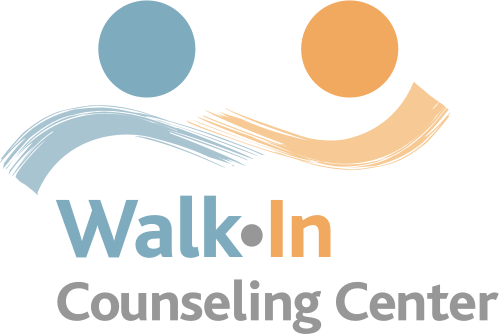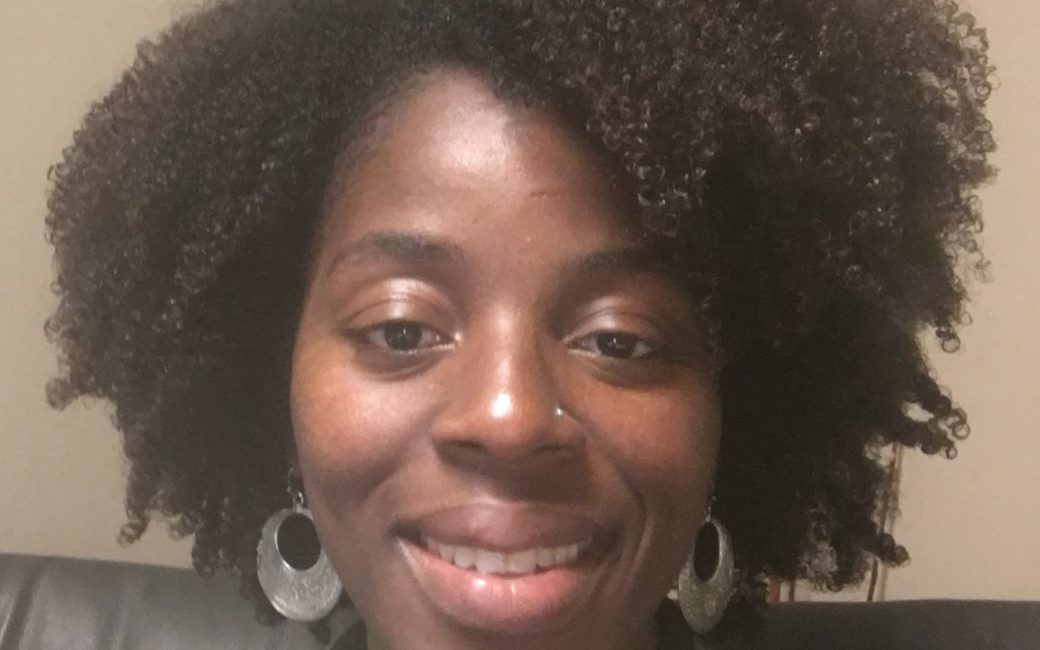That Kesha R. has chosen social work as her career seems a natural choice. She comes from a family of helpers. “When I was little, a neighbor had a mental health crisis, and my dad was the one calm person who could go in and make it better,” she recalls. Today, Kesha is a Walk-In volunteer therapistwho is finishing her on-line social work degree at Colorado State University . The hours she puts in serving Walk-In clients help her earn her degree.
Fluent in Spanish as well as English (her parents hail from Panama), Kesha is a member of several clinic teams and serves Spanish-speaking clients as well. Working through this time of pandemic and social unrest has only affirmed that she has picked the right field, Kesha says. “I’m grateful to be able to work with people who have a lot to overcome, but who are so strong and adaptable.”
One of her Spanish-speaking clients, a mother of three, was enduring abuse from her partner without much support in the community because she was new in town. “When she first called, she was living in car. Then she transitioned to a shelter, and recently, she moved into her own place. She is an amazing story. She is super resilient, really positive, and so attentive to her kids’ needs. Through it all, this mom continued to read with her kids and work hard to engage them with their schoolwork.”
Walk-In counselors have had to be a bit adaptable recently as well. When the COVID-19 pandemic hit and a stay-at-home order was imminent, Walk-In moved all of its counseling services on line using Zoom. Now clients “walk in” by calling a clinic or logging into a clinic on their computer.
“At first, I was afraid my brain wouldn’t adapt to Zoom,” Kesha says. “But then we did our clinic, and it wasn’t as intimidating as I thought. Now I think it’s a blessing to be able to do this work on line or on the phone. Some clients I have never seen – I’ve just heard their voices – but we can still connect.” With her husband, Kesha has three children, ages 3, 8, and 11 – and Kesha’s lack of commute “benefits me and family, and it benefits the client.”
As a black woman in a majority-white state, Kesha at times hears negative generalizations about black people, with the qualification, “but you’re different.”Recently, when a Latino couple came to see her who were living near the recent protests and fires, Kesha had a moment when she feared she might hear similar comments. She was relieved when the couple insteadexpressed empathy for the experiences of the black community.
Since the protests, “I have the benefit of learning from all sides … hearing in the community that ‘this is horrible, and it’s been happening too long’ and also from family members of police officers who feel under attack, when that’s not the case.”
“It’s been a lot. But there’s also a lot of good happening during this transition,” Kesha says. “I think people’s eyes have been opened in a way that hasn’t happened before.”
Sometimes, life events can circle back in interesting ways. The reason Kesha moved to Minnesota from her native Illinois was because her mom, who lives here, needed a new kidney. Kesha wasn’t a match, but she donated a kidney as part of a “domino” procedure, in which six patients, including her mother, received kidneys. Her mother is now doing well.
That Kesha is now here, helping people including a battered mom, is a bit like what her own mother did decades ago. Back then, Kesha’s mom found out a work colleague was being abused by her husband, and “she took her under her wing. We watched the kids for her; 30 years later, she and my mom are still friends,” Kesha says.
Thirty years from now, we hope Kesha is still here in Minnesota, connecting people with the inner strength to overcome life’s obstacles.

